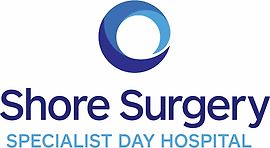North Auckland, West Auckland > Private Hospitals & Specialists > Evolution Healthcare >
Shore Surgery - Gastrointestinal Endoscopy
Private Surgical Service, Endoscopy (Gastroenterology), Gastroenterology
Description
At Shore Surgery Specialist Day Hospital, we deliver high-quality private healthcare with a team of experienced specialists. Located on Auckland’s North Shore, we proudly offer the latest techniques and state-of-the-art equipment to patients in our region and beyond.
Founded in 1998 by a group of independent doctors, Shore Surgery was built to provide exceptional day surgery services in a modern, purpose-designed facility.
Today, as part of the Evolution Healthcare group, we continue to be one of the leading providers of private surgical care on the North Shore. With a long-standing reputation for excellence, our focus remains on delivering the very best experience and outcomes - putting our patients, people, and specialists first in everything we do.
Consultants
-

Dr Dominic Ray-Chaudhuri
Gastroenterologist & Endoscopist
Procedures / Treatments
This is a procedure which allows the doctor to see inside your oesophagus, stomach, and the first part of the small intestine (duodenum) and examine the lining directly. What to expect The gastroscope is a plastic-coated tube about as thick as a ballpoint pen and is flexible. It has a tiny camera attached that sends images to a viewing screen. During the test you will swallow the tube but the back of your throat is sprayed with anaesthetic so you don’t feel this. You will be offered a sedative (medicine that will make you sleepy but is not a general anaesthetic) as well. If the doctor sees any abnormalities they can take a biopsy (a small piece of tissue) to send to the laboratory for testing. This is not a painful procedure and will be performed at the day stay unit in a theatre suite (operating room) by a specialist doctor with nurses assisting. Complications from this procedure are very rare but can occur. They include: bleeding after a biopsy, if performed an allergic reaction to the sedative or throat spray perforation (tearing) of the stomach with the instrument (this is a serious but extremely rare complication). Before the procedure You will be asked not to eat anything from midnight the night before and not to take any of your medications on the day of the procedure. After the procedure You will stay in the day stay unit until the sedation has worn off which usually takes 1-2 hours. You will be given something to eat or drink before you go home. If you have been sedated, you are not to drive until the following day. If biopsies are taken these will be sent for analysis and results are available within 2-3 weeks. A report and copies of these are sent to your GP.
This is a procedure which allows the doctor to see inside your oesophagus, stomach, and the first part of the small intestine (duodenum) and examine the lining directly. What to expect The gastroscope is a plastic-coated tube about as thick as a ballpoint pen and is flexible. It has a tiny camera attached that sends images to a viewing screen. During the test you will swallow the tube but the back of your throat is sprayed with anaesthetic so you don’t feel this. You will be offered a sedative (medicine that will make you sleepy but is not a general anaesthetic) as well. If the doctor sees any abnormalities they can take a biopsy (a small piece of tissue) to send to the laboratory for testing. This is not a painful procedure and will be performed at the day stay unit in a theatre suite (operating room) by a specialist doctor with nurses assisting. Complications from this procedure are very rare but can occur. They include: bleeding after a biopsy, if performed an allergic reaction to the sedative or throat spray perforation (tearing) of the stomach with the instrument (this is a serious but extremely rare complication). Before the procedure You will be asked not to eat anything from midnight the night before and not to take any of your medications on the day of the procedure. After the procedure You will stay in the day stay unit until the sedation has worn off which usually takes 1-2 hours. You will be given something to eat or drink before you go home. If you have been sedated, you are not to drive until the following day. If biopsies are taken these will be sent for analysis and results are available within 2-3 weeks. A report and copies of these are sent to your GP.
- bleeding after a biopsy, if performed
- an allergic reaction to the sedative or throat spray
- perforation (tearing) of the stomach with the instrument (this is a serious but extremely rare complication).
This is a procedure which allows the doctor to see inside your large bowel and examine the surfaces directly and take biopsies (samples of tissue) if needed. Treatment of conditions can also be undertaken. What to expect The colonoscope is a flexible plastic-coated tube a little thicker than a ballpoint pen which has a tiny camera attached that sends images to a viewing screen. You will be given a sedative (medicine that will make you sleepy but is not a general anaesthetic). The tube is passed into the rectum (bottom) and gently moved along the large bowel. The procedure takes from 10 minutes to 1 hour and your oxygen levels and heart rhythm are monitored throughout. The procedure is performed in a day stay operating theatre. Before the procedure You will need to follow a special diet and take some laxatives (medicine to make you go to the toilet) over the days leading up to the test. Risks of a colonoscopy are rare but include: bleeding if a biopsy is performed allergic reaction to the sedative perforation (tearing) of the bowel wall.
This is a procedure which allows the doctor to see inside your large bowel and examine the surfaces directly and take biopsies (samples of tissue) if needed. Treatment of conditions can also be undertaken. What to expect The colonoscope is a flexible plastic-coated tube a little thicker than a ballpoint pen which has a tiny camera attached that sends images to a viewing screen. You will be given a sedative (medicine that will make you sleepy but is not a general anaesthetic). The tube is passed into the rectum (bottom) and gently moved along the large bowel. The procedure takes from 10 minutes to 1 hour and your oxygen levels and heart rhythm are monitored throughout. The procedure is performed in a day stay operating theatre. Before the procedure You will need to follow a special diet and take some laxatives (medicine to make you go to the toilet) over the days leading up to the test. Risks of a colonoscopy are rare but include: bleeding if a biopsy is performed allergic reaction to the sedative perforation (tearing) of the bowel wall.
- bleeding if a biopsy is performed
- allergic reaction to the sedative
- perforation (tearing) of the bowel wall.
Disability Assistance
Wheelchair access
Parking
There is on-site parking available for patients and two reserved short-stay parking spaces for the convenience of patients who need to be dropped off at the centre.
Pharmacy
Nearest community pharmacy here
Website
Contact Details
Shore Surgery
North Auckland
-
Phone
(09) 486 0113
Website
181 Shakespeare Road
Milford
Auckland 0620
Street Address
181 Shakespeare Road
Milford
Auckland 0620
Postal Address
181 Shakespeare Road
Milford
Auckland 0620
Was this page helpful?
This page was last updated at 8:40AM on October 6, 2025. This information is reviewed and edited by Shore Surgery - Gastrointestinal Endoscopy.

